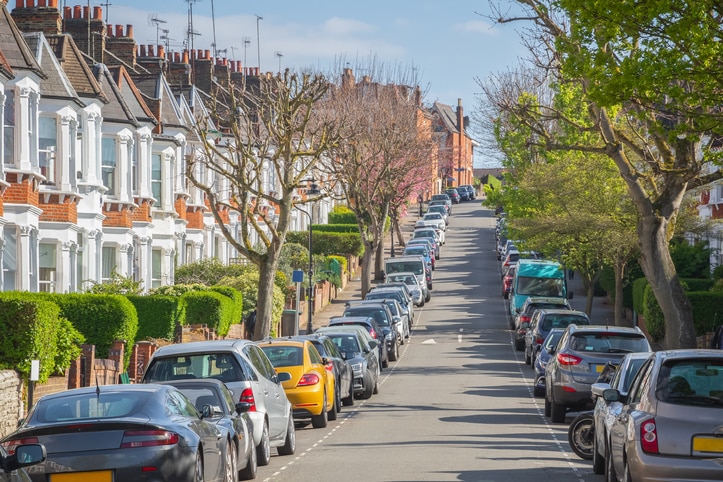Expat guide to investing in the UK part 2. Part one is here.
For any questions, or if you are looking to invest as an expat, you can contact me using this form, or via the WhatsApp function below.
Table of Contents
Introduction:
In the previous article, we became familiar with some of the investment opportunities available for the expats living in the UK, and in this article, we will know more opportunities and discuss some investment tips for expats in the UK.
Let’s not waste any more time and jump into the details of the investment options for expats in the UK.
Property:

Over here, we will start by discussing property investments available for expats. Just like mainstream investments such as pension schemes or savings accounts, investing in property is another lucrative investment option available for expats.
Because of this reason, property investments are a crucial part of most expats’ investment portfolios. While we are talking about expats, the investments made into properties might also include their primary residence, if not any other additional property.
Expats usually invest in additional properties to obtain profits in the form of rental income, which is regular.
Before April 2015, expats were easily able to sell the UK properties without having to pay capital gains tax, but things have changed since April 2015.
From April 2015, all the property sales are subject to capital gains tax in the UK. Regardless of these changes, property investments in the UK are still considered to be attractive because of the increasing housing prices.
Investing in properties can be advantageous for expats as they get both long-term and short-term profits.
While staying in the UK as an expat for the long term, you might want to buy a property, especially when are aware that you will live in a particular place.
Adding to that, buying a house can be an attractive option considering the current scenario of low-interest rates on a mortgage.
Some people might benefit from renting a property in the UK, but we are not going to get into those details as we are here to discuss properties as an investment.
One common doubt among most expats who are in the UK or the people who plan on residing in the UK is whether they are able to buy a property in the UK.
The answer to that question is “Yes”, expats can buy properties in the UK and there are no legal obligations for doing so. Moreover, there are a wide range of mortgage providers who offer mortgages for non-residents and foreigners to buy property in the UK.
There are, however, some issues needed to be faced by the people who have been residing in the UK for a period lesser than two years and don’t have a job there.
For such people, the requirements are strict and they would be required to make a bigger deposit than usual.
While buying a property in the UK, you must hire a UK solicitor or a conveyancer to take care of all the legal issues. The taxes are the same for both residents and non-residents when they are buying a property in the UK.
But when you intend to buy a property in order to gain rental income from that, then you must have to pay tax on the income generated (which is the same for residents), but this can be avoided if you are already paying taxes on this income in your home country (the country should have a double taxation treaty with the UK).
When we talk about the prices of properties in the UK, there has been some uncertainty in the property market from 2016 after the Brexit vote, yet the average prices remain the same.
The housing prices in the UK are expensive compared to the prices in EU countries. Especially, the property prices in London are pricier compared to any other major city in the UK.
While you are buying a property in the UK, the prices will be categorized into two sections, where the first one is upfront costs and the other one is ongoing costs.
Upfront costs of buying a property in the UK are comprised of the following costs:
- Stamp Duty – Stamp Duty is levied on all the property purchases having a price of more than £125,000, and for such properties, the stamp duty is around 2% to 12%.
This might even be around 3% to 13% for properties other than the primary residence.
- Deposit – when you are opting for a mortgage in the UK to buy a property, then you will have to pay a down payment, which can range between 5% to 40% of the property depending on the impacting factors.
- Mortgage costs – along with the down payment that needs to be paid, there will be some additional mortgage costs when you opt for a mortgage such as an arrangement fee, booking fee, and valuation fee.
To most people’s surprise, these costs might set you back a few thousand pounds.
- Legal Fees – when you appoint a solicitor or a conveyancer on your behalf, you must pay them, and the fees required for that might be around £1,000 or more.
These costs are to be paid by people regardless of whether they opt for a mortgage or not.
- Land Registry Fees – These fees are to be paid for the transfer of the legal deeds of the property you buy, and the UK government levies these fees.
- Removal costs – These are the property transfer costs that transfer your possessions to the UK from your home country.
These costs might vary depending on how much are you moving and how far is the transfer. You can acquire services from a removal company, but the average costs usually range between £300 to £600.
Having discussed the upfront costs, we will now take a look at the ongoing costs of buying a property in the UK.
- Mortgage repayments – there is no need to say this in particular, but once you opted for a mortgage to buy a property in the UK, you will be required to pay back the mortgage.
- Maintenance and repairs – If you purchase a new property or a property that is in a good condition, then the maintenance and repair costs might be low.
However, when you buy a property that needs a lot of work to be done, then you would have to spend some money to bring the property back to optimum condition.
- Insurance – You will have to obtain insurance on your property, and the insurance will differ based on the policy you’ve chosen and the provider you selected.
- Regular costs – There is a requirement for you to pay a council tax according to the value of your property, and along with that, you will also have to pay utility bills like electricity bills, water bills, gas bills, etc.
- Leaseholder costs – If you bought a leasehold property, then you would have to pay additional costs known as “leaseholder costs”, which usually range around £50 to £100 a year.
Getting a mortgage can be a process that requires a lot of time and effort, and you can find details of the mortgage provider suitable for your needs by clicking here.
The UK government even offers some assistance for people who want to buy a house in the form of a scheme known as “Help to Buy”, which suits the tenants who have been living in a property for at least three years.
The property you have bought can be sold any time you want, but if you opt for selling your property before clearing up the mortgage, then you will have to bear the losses.
While selling, you must pay fees to a solicitor, who acts on your behalf, and if you hire an estate agent for the sale, then you should pay those fees as well.
Investment Platforms:

Investment platforms are the online service providers that allow individuals to buy financial products, specifically investment funds.
Even many investment advisers and/or wealth managers opt for these investment platforms as they can access all their investments in a single place.
There are various types of investments offered by such platforms, but the exact types of investments offered will depend on the financial institution offering them.
Not just investment funds, but expats can also invest in cash, equities, gilts, and structured products, and all the investments can be held within a single tax wrapper.
Although these platforms charge administration fees, the overall fees related to making an investment are somewhat reduced.
There is an important thing to know before deciding to invest with the help of investment platforms, which is, not all investment platforms offer services for non-residents and expats, and therefore, you should pay attention to this aspect while selecting an investment platform.
Even when you are an experienced investor, it is wise to seek professional advice from a financial expert before choosing one.
UK Stock Market:
In the UK, most of the expats choose to invest with the help of OEICs (Open-Ended Investment Companies) or Unit Trusts, and by doing so, they gain broad exposure to the UK stock market.
OEIC – An OEIC (Open-Ended Investment Company) is an investment fund in the UK, which specializes in stocks and other securities, and this is similar to an Open-Ended Mutual Fund in the United States.
As they are similar to mutual funds, they are also managed by an expert fund manager, who invests the pooled funds acquired from the investors into various bonds, equities, and other securities.
Based on the net asset value of underlying assets in their portfolios, OEICs are priced once a day.
Most OEICs combine the sales charges and annual management fees and charge them as ongoing charges.
Unit Trusts – Unit Trusts are similar to mutual funds where the funds are pooled from various investors and are managed by a fund manager, but the profits from these funds are returned to investors instead of reinvesting them back.
Unit Trusts also comprises funds that invest in stocks, bonds, and other securities.

The only difference between a unit trust and a mutual fund is that unit trust comes with a trust deed, and the investor will be named as the beneficiary of the trust.
In general, OEICs and Unit Trusts are subject to SDRT (Stamp Duty Reserve Tax), and this SRDT will be included along with the other costs charged by the fund manager.
Some of the best fund management companies in the UK as of 2021 are as follows:
- Baillie Gifford & Co.
- Royal London Unit Trust Managers Ltd
- Link Fund Solutions Limited
- Fidelity Worldwide Investment
- Aberdeen Standard Fund Managers Limited
- Scottish Widows Unit Trusts Managers
- HSBC Global Asset Management (UK) Limited
- Vanguard Investments UK Limited
Now, when we are talking about the stock market, investing directly with the help of a broker may not be as convenient as investing with the help of an OEIC or a Unit Trust.
Unlike the fund manager who takes all the financial decisions in OEICs and Unit Trusts, you shall be responsible for taking care of your assets when you invest with the help of a broker.
This allows you to choose the stocks you want, invest in them whenever you want, and even sell them whenever you want.
Some brokers in the UK offer the best services for the people who want to invest in the stock market by themselves, and some brokers might also be SIPP or ISA managers.
You should do some research of your own when you search for such brokers because most of the regular ISA managers do not allow DIY investing using their stocks and shares ISAs.
While investing in the UK stock market, there are some costs that you need to take into consideration, which are as follows:
- Stamp Duty Reserve Tax (SDRT)
- Broker’s commission fees
- PTM levies
- Other costs
The SDRT is imposed at 0.5% when you buy UK shares. Broker fees usually range around £12.5 per transaction and may vary depending on the broker you choose.
The PTM (Panel of Takeovers and Mergers) levy is generally charged at 1% on all the transactions that exceed £10,000.
Can expats invest? – with the help of advanced technology these days, anyone can invest in the stock market with the help of the internet.
However, the process might become somewhat hard when you are trying to invest in the stock market of another country.
For that, you will have to choose a broker that caters to the needs of expats and non-resident individuals, and these brokers should allow you to invest or trade with the shares on the FTSE.
By completing all the necessary application forms, submitting the required documents, and making an initial deposit, you will be ready to invest in the UK shares.
In most cases, the brokers available in your country of origin might even provide access to UK shares and most of them are listed on the foreign exchanges as well.
US citizens living as expats in the UK:

It should be duly remembered that the US citizens who are living as expats in the UK might not have too many options available when it comes to investing in the stock market.
Let us see the reasons:
- US citizens living abroad are subject to troublesome tax requirements, where they might even be required to pay tax when there are no taxes applicable.
- In certain situations, US tax implications are imposed for individuals who have never lived or worked in the United States.
- The rules applicable for US citizens regarding the types of investments they can hold are extremely complex.
- The general and most common types of investments available for these people in the UK are taxed at higher rates, and the main reason for this is to make sure they don’t make mistakes that cost a lot.
- Therefore, US citizens living in the UK (or any other country) should always try to find an efficient adviser to find out about the investment opportunities available for them, and this would result in additional costs.
- Since July 2014, an important declaration was brought into effect, which was known as Foreign Account Tax Compliance Act (FATCA).
This requires non-US financial institutions and non-US banks to report the information regarding US-related customers, and this information is to be provided to the IRS (Internal Revenue Service).
Instead of going through all this fuss, most financial institutions just stopped offering services to US-based customers and even asked most of the existing customers to move their accounts.
Even though US citizens have abundant investment options considered to what they had before, that still doesn’t mean that they have a wide range of investment options available.
Not only that, but even when they acquire services related to various types of investment opportunities, they would still be paying more than what a non-US expat will be paying.
Even when a person is not a citizen in the US, he/she will be considered as a US person if they are a tax resident or a green card holder, whereas citizens would automatically fall under this category.
People are considered US citizens even though they have been born outside of the US, and never lived there themselves, like when one of their parents is a US citizen.
Until a person officially relinquishes their citizenship, they would be taxed as per the tax obligations in the United States.
As we discussed before that most expats in the UK usually opt for OEICs and Unit Trusts, but when it comes to US expats living in the UK, it might not be a good idea.
Most OEICs and Unit Trusts are considered as Passive Foreign Investment Companies (PFIC) by the US Internal Revenue Service (IRS), and in such situations, the taxes can be severe.
The income from various types of investments is considered as PFICs because the income obtained from them is considered Passive income, and this includes a majority of the shares in the UK.
The options available for US investors (expats or foreigners) to invest in UK stocks are as follows:
- Most US brokerage firms offer UK stocks, but not all of them, and therefore, you should choose the brokerage that caters to your needs.
- When you wish to invest in a particular stock, then you can invest in it indirectly with the help of a US mutual fund that consists of UK stocks.
Mutual funds consist of several companies’ stocks and are the best way of diversifying your portfolio, and furthermore, investors are protected by the regulations of the US Securities and Exchange Commission.
- Exchange-Traded Funds (ETFs) are another way for investors who want to invest in UK stocks, and as they are traded on stock exchanges just like stocks, they offer a higher amount of liquidity compared to mutual funds.
- Finally, American Depository Receipts (ADRs) are also a good option for US investors as they contain one or more foreign shares or a particular fraction of them.
Things to remember while investing in the UK as an expat:

Whether it is property or stocks, or anything else, when you are investing in the UK as an expat, certain important aspects are to be taken into careful consideration.
- Income obtained in the form of interest from UK banks or dividends from UK stocks will not be subject to taxes in the UK (for expats).
- Rental income will be taxed as per the respective tax rates, and this can be reduced if the expat is holding the properties (residential or commercial) with the help of a non-UK company.
- When an expat sells their assets, then there will not be a UK Capital Gains Tax (CGT), which is regardless of the source of the asset.
Yet, there will be a CGT on the profits obtained from the disposal of interests in UK property (either commercial or residential), along with those obtained from the disposal of UK property-rich entities.
If it is a residential property, then holding the property with the help of a non-UK company will reduce the tax rates.
- All the taxes applicable on the investment made by an expat will depend on their home country tax rules and the terms related to the applicable double tax treaty (if exists).
- There will be a UK Inheritance Tax (IHT) on the UK assets when you are an expat and are not domiciled in the UK.
- If you hold an asset with the help of a non-UK company, then the asset’s value will decrease in terms of IHT, but this may not happen always.
- This strategy is efficient for most assets except for residential property in the UK.
- Expats living in the UK, who are subject to taxes should file UK tax returns, even when the UK tax is relieved as per an applicable double tax treaty.
- All the tax returns are to be submitted by 31st January after the completion of a UK tax year (6th April to 5th April) and taxes should be paid at the same time as filing the returns.
However, non-residents who sell UK-based real estate have to file a special non-resident CGT return and the taxes should be paid within 30 days of the sale.
- Expats can hold UK assets with the help of a nominee in order to protect their privacy, which includes the shares in a UK company as well.
- If a non-resident owns more than 25% of the shares that belong to a UK company, then the company must provide the individual’s details in the company’s register of ‘persons with significant control (PSC)’, which information is known is to be public.
- Every expat should think about making a UK Will, which should cover the UK assets as this makes the process of handling the assets easy in case of the individual’s death.
- It is also important to make a Lasting Power of Attorney, which allows the individual’s attorney to manage the assets in the UK.
- Other than that, it is wise to pay attention to your investment portfolio and rebalance assets depending on your financial goals and investment objectives.
Bottom Line:
The process of investing can be extremely hard as it requires a lot of time and effort, and keeping this in mind, it is wise to appoint a financial expert on your behalf to take care of your investments.
If you have a significant amount of wealth and you want to increase your net worth, then you can benefit from the top-notch wealth management services offered by us through this link.
You can even acquire our services with the help of our mobile application by clicking here.
Alternatively, you can even start gaining financial knowledge related to investments by opting for our Adam Fayed Academy, and then you can take care of your investments on your own.
Pained by financial indecision? Want to invest with Adam?

Adam is an internationally recognised author on financial matters, with over 354.2 million answers views on Quora.com and a widely sold book on Amazon



